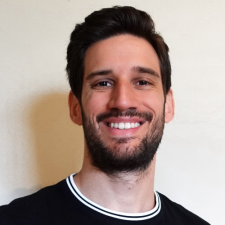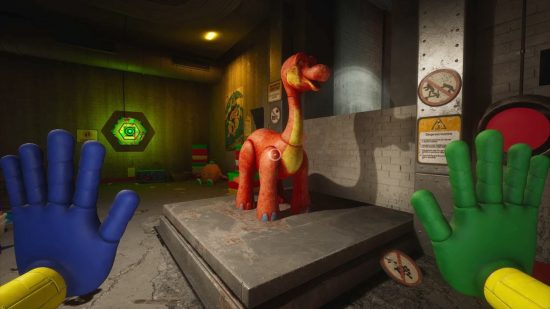Keywords Yago Sagrado García discusses the growing South American games market | Pocket Gamer.biz

Mobile gaming is a massive driving force for the global gaming industry, so much so that last year mobile gaming accounted for 50% of the global revenue of the entire industry. Contributing to this popularity and success are games in South America. Brazil is one of the fastest-growing regions we are seeing, with over 88 million players.
We caught up with Keywords Studios communications manager Yago Sagrado García who works to support game creators in reaching wider audiences. He explains Brazil’s growing market and touches on artificial intelligence’s present and future capabilities.
___________________________________________________________________________
PocketGamer.biz: Tell us about your work so far and what got you into games?
Yago Sagrado García: My first foray into the video games industry was a two month job as a Spanish localisation Tester at Electronic Arts in 2014. At the time I applied, I had no idea how video gaming companies worked, but I did know it was something I wanted to try. I researched whether there were any game companies in my hometown of Madrid, found Electronic Arts had an office and applied for the only job I saw open. It was late into their peak season so all LQA testing had actually already started. Luckily for me, one of the Spanish testers had just left at the same time I applied, so my CV was the first one on the pile as a replacement. And that is how I got my first assignment, working on FIFA content and thinking: “Yeah, this is where I belong.”
A couple of years later, Keywords Studios acquired 3 smaller localisation studios in Madrid, merging them into a single entity. I joined as Audio localisation Project Manager and got to spend 3 very busy years working on titles by dozens of publishers, including some of my favourites like Riot and Blizzard.
Tell us about Keywords Studios and your work there
Keywords is the #1 technical and creative solutions provider to the video games industry. We partner with leading games companies worldwide and utilise our global network of games studios to provide solutions for our clients. I like to think there is a little bit of Keywords in every game you see, whether it is in the development of the game, its music licensing, localisation, testing, community management… you name it!
Right now I work as Communications Manager for the globalize service Line, which encompasses all the services we provide to support game creators to reach larger audiences and create experiences that feel native wherever you play. Globalise consists mainly of four services: Text localisation, audio localisation, functional QA and localisation QA.
My background is in journalism and communications so my passion for games and previous experience in the industry are all a perfect fit. My role is kind of a hybrid, together with the marketing and sales teams I make sure our external communication – to clients and the public – around our localisation services is clear and effective. I also tend to internal communication tasks for the hundreds of people working in localisation for us around the world.
What makes Keywords Studios different?
Keywords is very special in that there are very few companies in the world that can partner and provide support to the scale that we can, across all aspects of the development lifecycle. Although a lot of gamers won’t even know we exist, we have more than likely been an integral part of making their favourite game.
As a gamer, one of the great things about Keywords is that you get to work with so many different companies and titles. You are almost sure to lend your hand to a game you love in some way or another! The way Keywords integrates and partners with its clients also makes it feel like you truly are a part of the process, just as much as the people working on the developer’s side. It is very special and something I don’t think you can get elsewhere.
How exactly is AI being used in your work, and how might it be used further in the future?
Although AI’s capabilities are immense, I can only really talk about how it’s affecting the part of the process I am more involved in, which is localisation. And, yeah, it’s having a great impact, although not in the way most people might think.
As Games as a Service models have taken over the industry in recent years, most developers now face the necessity of delivering constant content streams to their players to keep them satisfied and engaged. At the same time, the global impact of games is ever- increasing, and publishers need to cater to their audiences wherever they are, whatever language they speak and however they want to play. The result is that they need to deliver constant flows of content simultaneously in many different languages. AI applied to localisation processes are here to help with precisely this. By using AI, we are better at accelerating workflows; we can automate repetitive and time consuming tasks such as asset management, asset pre flights and content preparation to name a few.
Where appropriate we can take it a little further. For example, last year we deployed a Direct To Translator model for a large scale corporation that needed their entire portfolio of games translated into no fewer than 33 languages. The solution included process automation as described above as well as creation of dedicated machine translation engines supported by robust post-editing.
Many people think that AI will replace humans. That’s not how we see it at Keywords. Creating games is a highly creative process and we approach AI in ways that accelerate our human talent so they can dedicate more time to these creative endeavours, freeing them from the more repetitive tasks.
Tell us about the expansion in Brazil. What’s different about this market and why is it growing?
Brazil is such an exciting market at the moment. It is very much its own entity, being the the only country in South America with Portuguese as its native language. The establishment of mobile as a major gaming platform in recent years is due in large part to the country’s strict import laws and high prices for consoles and gaming PCs. So, mobile gaming has offered an alternate route to video games and opened the door to millions of new players across Brazil.
And the most exciting thing is, Brazil is still far from reaching its true potential. We’re talking about a country of 212 million people where improvements are being made in mobile internet infrastructure. This is going to allow so many new gamers the opportunity to access high-end games without having to buy expensive hardware. All the signs are there for Brazil to keep enlarging their player numbers and therefore the market as a whole.
What does Keywords/Helpshift allow developers and publishers in this region to achieve?
Keywords/Helpshift is a tool that enables developers and publishers to offer high quality, cost-efficient in-game player support for their games. It has a range of functionalities, including multilingual support powered by AI translation, which can greatly improve the player experience. With our integrated Machine Translation capabilities, Helpshift enables publishers and developers to scale globally without breaking the bank. They can offer Machine Learning support in 50 languages without needing to hire additional staff. Helpshift also has automation and bot capabilities that allow for quicker responses to players, keeping them happy whilst lowering the cost of support.
Overall, Helpshift is a powerful support platform that enhances player support capabilities and enables businesses to provide better support and engagement for their players, within tight budgets.


